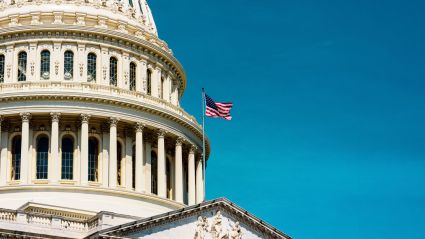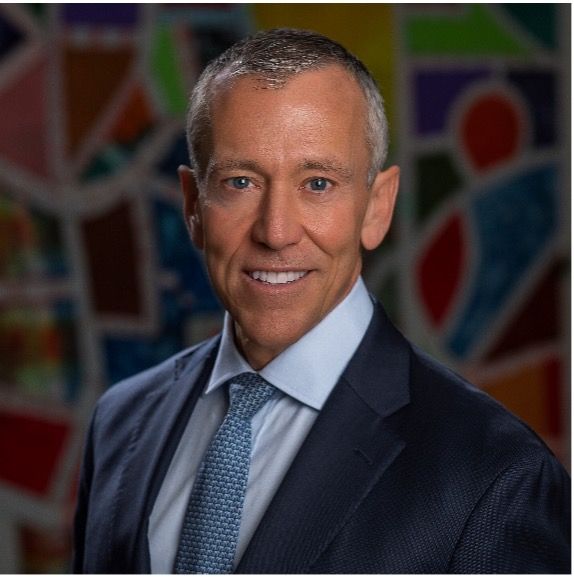In the wake of the 2008 global financial crisis and ensuing regulatory reforms, U.S. banks dramatically altered their sources of funding. Funding from non-deposit sources now accounts for only 13 percent of bank liabilities, compared with more than 30 percent 10 years ago. However, bank funding from Federal Home Loan Banks (FHLBs) has not followed suit. Money market fund reform, like FHLB advances, designed to strengthen financial stability may have unintentionally exposed taxpayers to potential banking system losses.
In this paper, we show that the use of FHLB advances accelerated following regulatory changes to money market funds. These regulatory changes lowered the cost of FHLB advances, and also had the effect of shortening the maturity of FHLBs obligations to satisfy the needs of MMFs. We conclude with some policy considerations.
Related Content
-

China's Global Investment Strategy
China is on track to surpass the United States as the world’s largest economy by the year 2030. While the government has at times adjusted the pace of its ascent, the country has nevertheless established itself as an economic power...Read Report11 11 11 Michael Jarand, Josie Lui, Jakob Wilhelmus, and Perry Wong
Michael Jarand, Josie Lui, Jakob Wilhelmus, and Perry Wong -

Investing in America's Future: 2021 Policy Priorities and Solutions
Even before the onset of the COVID-19 pandemic, the United States was confronted with a number of significant policy concerns. Today, working together to solve those challenges is more imperative than ever. The Milken Institute is committed...Read Report -

Milken Institute Announces Global Investors’ Symposium in Mexico and Study on the Female Workforce in Latin America, Underscoring Its Strategic Commitment to the Region
The event marks the Institute’s long-term commitment to catalyze investment and drive opportunity across Latin AmericaRead ArticleImage
Chad Clinton
Director, Media RelationsChad Clinton is the director of media relations for the Milken Institute. Hired to this role in August 2021, Clinton develops and executes strategies to amplify the Institute’s core messages by generating coverage of its pillar workstreams, experts, and events. -
Milken Institute Appoints William Lee as Chief Economist
LOS ANGELES – April 11, 2017 – The Milken Institute today announced the appointment of William Lee as Executive Director and Chief Economist, based in Santa Monica, CA. In this role, Lee will be responsible for analyzing U.S. and global...Read Article -
Rebuilding Housing Finance: Thoughts from California on Federal Reform
Both in the foreclosure crisis and in the recent recovery, California has represented a bellwether of the national housing market. The housing crisis that began in 2007 caused considerable economic damage in California and across the...Read ReportImage
John Schellhase
Director, Environmental and Social Innovation team, Milken Institute Strategic PhilanthropyJohn Schellhase is a director on the Environmental and Social Innovation team at Milken Institute Strategic Philanthropy, where his work focuses on social impact philanthropy. As part of his work, Schellhase contributes to and manages projects related to strengthening corporate philanthropy and operating innovation competitions to advance the Sustainable Development Goals. -

Best-Performing Cities and Microbusiness Activity: Exploring Policy Implications of Online Economies
This report combines results from the Best-Performing Cities 2022 (BPC) index and GoDaddy’s Microbusiness Activity Index (MAI), examining what may be happening in the economies of a selection of cities in the two rankings. Essentially, we...View Research -
Office of Management and Budget (OMB) – Practices for Advancing Equity and Support for Underserved Communities
Submitted electronically To: The Honorable Shalanda Young, Acting Director, Office of Management and Budget From: Richard Ditizio, President and Chief Operating Officer, Milken Institute About the Milken Institute: For the past three...Read LetterImage
Richard Ditizio
CEO, Milken InstituteRichard Ditizio is the CEO of the Milken Institute, responsible for all pillars and departments across the organization's global footprint. Under his leadership, the Institute expanded its staff and programmatic work to Asia, Europe, the Middle East, and Latin America. -
For Whom Are We Building the American Dream? The Role of Subsidies in the Economics of Housing
Leaders from across the political spectrum articulate the virtues of homeownership. As expressed in the above quotations, both Republican and Democratic presidents emphasize that homeownership is part of the American dream. Besides the...Read Report -

Mexico's Competitiveness as a Strategic Trade Partner Interactive Map
In early 2023, US imports of goods from Mexico surpassed those from China, making Mexico the main origin of goods imported to the US for the first time in modern trade history. In response to the growing importance of US-Mexico trade...View Research -

Empowering Communities and Their Banks: Strategies for Enhancing Minority Depository Institutions
The Milken Institute, with support from The Rockefeller Foundation and JP Morgan Chase & Co., is excited to release its latest contribution to the national conversation on how to improve underserved communities. This research, Empowering...Read Report11 11Ragini Chawla and Christopher Lee -

Supporting the Growth of California's Life Sciences Industry
The life sciences are a cornerstone of technological innovation in California. Local firms, laboratories, and universities perform cutting-edge research and development (R&D) activities that have led to numerous technological breakthroughs...Read Report11 11 11Alissa Dubetz, Matt Horton, and Aaron Melaas -

Best-Performing Cities China 2023–2024: The Nation’s Most Successful Economies
Best-Performing Cities China 2023–2024: The Nation’s Most Successful Economies aims to provide businesses, investors, policymakers, and many others with a tool for better understanding and evaluation of the economic development of China’s...Read Report 11
Perry Wong and Michael Lin, PhD
11
Perry Wong and Michael Lin, PhD